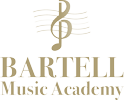Top Accordion Lessons in USA
Popular Accordion Lessons

The Monarch Accordion Company was founded in Denver Colorado in 1946. In 1976 it was purchased by professional accordionist Mike Aman. Mr. Aman spent 50 years in the accordion field as a teacher, prof ... Read more

Owner Mike "Bellows" Bulboff was enamoured with the piano accordion ever since he discovered one in his father's attic. What started as a curious hobby led to repairing, teaching, and i ... Read more

Performing and also employed as a music teacher in the Houston area for over 20 years (as well as touring in India and Thailand), Ed Motter-Vlahakos custom fits curriculum to the students particular l ... Read more

 Seattle, USA
Seattle, USA
“Our mission is to provide a community and a culture that encourages learning, friendship, personal growth, and self expression for our students, their families, and our wonderful staff.” ... Read more

 Seattle, USA
Seattle, USA
Founder, Carlo Petosa, passionately began crafting accordions instrument by hand, one at a time; a practice that continues to this very day. He was unaware that he was giving birth to a legacy that wo ... Read more

 Austin, USA
Austin, USA
SHIRLEY JOHNSON TEACHES students of ALL AGES, from elementary school children through adults, how to play the PIANO ACCORDION.

 Portland, USA
Portland, USA
Eileen Hagen is a world class piano accordion teacher who has been teaching since 1949, when she was 17 years old. She began taking lessons at age 9, and her teacher was Luigi Rangan.
Music is a moral law. It gives soul to the universe, wings to the mind, flight to the imagination, and charm and gaiety to life and to everything.
Founded in 1948 and home of the Westmont Philharmonia Accordion Orchestra, the Acme Accordion School is the place for everything accordion. Acme sells new and used button box and piano accordions, CDs ... Read more
At 6 yrs of age I began accordion lessons, followed by piano, drums, voice and danceFinalist in Mid-South Fair Youth Talent Contest for 3 consecutive years
Rosita Lee Music Centers were established in 1938 by the Lee family. It has continued as a family music school and has been owned by Roger and Rosita Lee Latulippe since 1960.
Born in La Paz Bolivia, South America, Patricia is a graduate of Whitworth University with a B.A. in Music Education and Accordion Performance.
VirtuousReviews brings you the best Accordion lessons in USA. Contact the institutes near your location to compare the best prices.
Inspiration to learn Accordion may come from so many classic Accordion artists, whose works may date back to 1880s. Accordions are wind instruments. The big bellows in an Accordion, does the job to squeeze in and squeeze out the air. That is the reason behind a few people calling it, a Squeezebox. An Accordion has palettes which are operable by the keys. So when you press a key, air passes through the brass strip. Resulting in a producing a sound.
Akkordeon (German), was formed somewhere in the 1820s, and it was a musical instrument of the common man. Europeans made the Accordion famous by introducing it to the world. For years Accordion traveled to Russia, Korea, Brazil and more. Although, 1900 to 1960 is considered to be the golden age for Accordion players. Many Accordion artists like Petro Frosini, Charles Magnante became big influences of their time. Most of the Accordion instructors teach Western Music Theory, which has been accepted globally.
Basic Components of Western Music Theory
- Pitch:- Pitch can be defined as how high or how low a note gets. It is directly proportional to the frequency of a sound. Pitch of a sound is very particular and it cannot be matched, even by a similar sound produced by a different equipment.
- Scales:- Scales came out as patterns in music which sensibly completes a music circle. A musical scale is made up of notes with a certain pattern to follow. For example, there are major scales in music which follows “Root Note-Tone-Tone-Semitone-Tone-Tone-Tone-Semitone” pattern. The last note of which again comes out to be the root note. There are a lot of other scales in music.
- Consonance and Dissonance:- Pick a note on any musical instrument. There are a number of consonance and dissonance for a note within its own scales. Consonant notes sound complete when played together. Dissonant notes give a feeling of incompleteness.
- Chord:- Chords can be defined as notes in a scale, which when played together, create a sensible sound. It can only be consonant notes or a combination of consonant and dissonant notes. For example, to play a major chord in any scale, you need to pick the first, third and fifth note from that scale. Play the selected notes together. You have got your chord.
Authorize your self with either of these to view contact details, your information will not be shared to any one
Newsletter Subscription for Virtuous Reviews LLP
One more step and you will be subscribed to our newsletters
We have sent you a verification mail on your email id, please verify it.


 Visit Website
Visit Website




